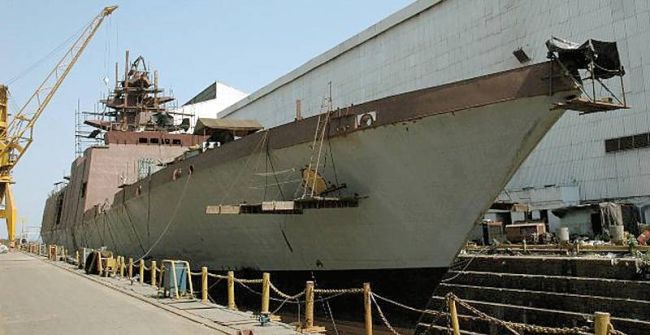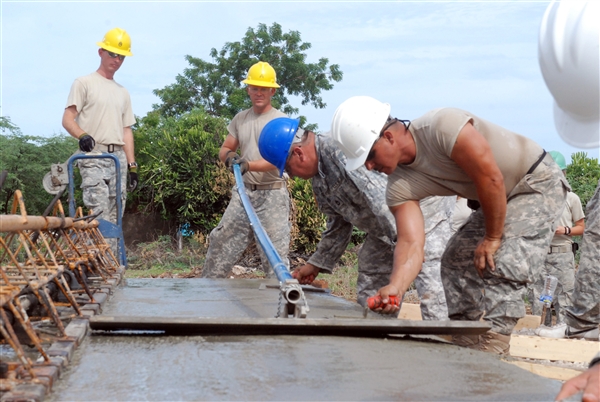GARMISCH-PARTENKIRCHEN, Germany — Commanders fighting the battles in Afghanistan and Iraq need a better “common operating picture” for their supplies, contracts and other logistical requirements, the Joint Staff’s logistics director said here this week.
During a June 28–29 visit to the George C. Marshall European Center for Security Studies, Army Lt. Gen. Kathleen M. Gainey toured the facility and provided the keynote speech for one of the Marshall Center’s graduating classes.
Gainey said she possesses “no budget or authority,” but instead serves as a combatant commander’s strongest advocate in the Pentagon for logistical efforts. She added that despite progress in meshing military supply and distribution chains, work remains to be done breaking down military cultural barriers, integrating data systems and fixing old rules.
“Some of the policies were not conducive to getting supplies in quickly,” she said. “So, we had to work through policy and regulatory changes. Many of our regulations and much of our guidance was in the Cold War era. We had to work those decisions and put changes in process.”
In her two years at the Joint Staff, Gainey said, progress has been made in Afghanistan. Instead of one supply route, there are two: via Pakistan and through the north.
Multinational partnerships have been vital to keeping troops fed and watered, as well as allowing combatant commanders flexibility to do their jobs.
“At the start of the war, we had just one route,” Gainey said. “That creates a single point of failure. That’s not a good position to be in. As you are trying to bring all this in, everyone is depending on this one route. We need more than one way to bring in cargo so we can bring it in fast and allow ourselves options due to volume or weather or other issues.”
Gainey also talked about issues with contracts.
“We found out we were creating bidding wars between our nation and other nations that were there trying to give support,” she said. “So we started working with those various countries to identify what contracts are already in place. What is the going price for gravel or water? We don’t create those bidding wars, and where possible, we want to leverage other nations’ existing contracts.”
She said some of those problems have been solved by having the International Security Assistance Force create one center for these needs. Creation of the center, she said, goes toward the idea of the one common operating picture that commanders need. Still, Gainey said, a long road remains to be traveled.
“If the ISAF or [the commander of U.S. Central Command] asked for the logistical posture for … his ability to fight something in depth as well as his backup plan, he would have to go to each of the services and each of the nations involved separately and drill all the way down,” Gainey said.
The general also addressed challenges with information technology. “Many of our IT systems are ’siloed.’ They do not talk well with one another,” she said. “Further, our systems aren’t as flexible and agile as they need to be to give that picture to commanders. We’re working hard to start creating that. It won’t happen today or tomorrow, but we can set the parameters and then find the interim solution.”
One of those solutions is the Global Combat Support System Joint, a system of computers trying to tie together supply and distribution chains of the military services. She added the U.S. Transportation Command and the Defense Logistics Agency continue to look for other solutions.
Industry, Gainey said, has also played an integral role in the war effort. She summed up civilian industrial partners’ effect on the war with one word.
“Huge,” she said. “We have a lot of capability within our commercial industry. If you have a shortfall of military manpower — where maybe we don’t have enough because of the volume of rotations and wanting to give soldiers that one year of downtime — you may be able to leverage industry to provide that capability.”
Gainey said the key to commanders achieving a common operating picture as well as gains in both Iraq and Afghanistan depends upon interagency and multinational cooperation. She said both government and nongovernment agencies, as well as industry, have made a difference in the combat theater and elsewhere.
“If everyone knows the shortfalls, they can then provide ideas and options for solutions that we hadn’t even thought about,” the general said. “Collectively, [working] those issues means you end up with a much better solution.”
Source:
George C. Marshall European Center for Security Studies
U.S. Department of Defense
Office of the Assistant Secretary of Defense (Public Affairs)

 von
von 
